East London rowing coaches break down barriers to watersports
London Youth Rowing are shaking up training
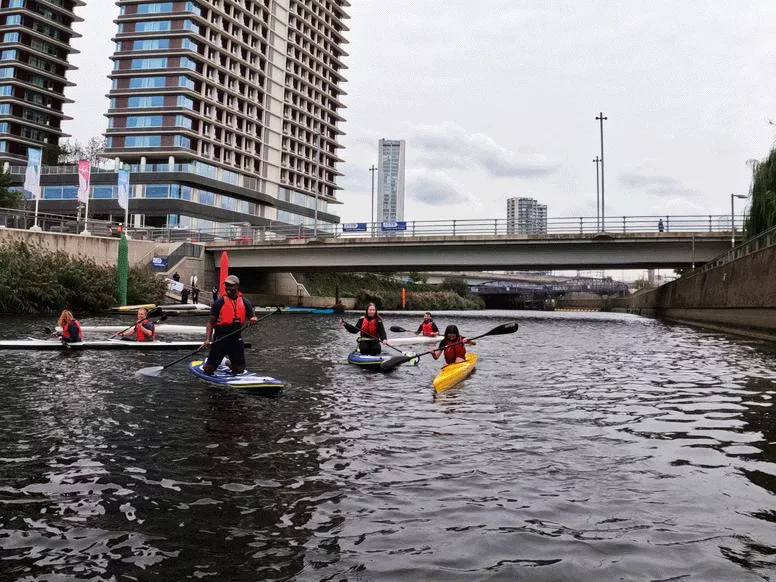
Coaches from London Youth Rowing are shaking up the way they approach training young people and inclusivity, after an investment in a formal coaching development thanks to funding from Active Thames.
By Emma Blackmore
“I’ll never forgive you if I fall in,” a young boy, his forehead lined with sweat, tells his coach as he sits in his rowing boat for the first time. The duo are at Queen Elizabeth Olympic Park in East London. His coach, Samuel Ogundana, kneels down and looks into the youth’s eyes. “I’ve been here before and I know how you feel,” the 24-year-old says. “You may feel scared,” he points to the river around them, “or you may not feel confident on the water, but I’ve been in this position before and I managed it, so you can too.” The young boy feels the oars in his hands and visualises the pull that he has so far only experienced on an indoor rowing machine. He’s nervous, but Samuel is there to help him. Their session begins.
And though there’s absolutely no way to tell, the 24-year-old coach has only been rowing since he joined London Youth Rowing a year and a month ago. Despite being a confident swimmer, Samuel had very little experience with watersports growing up, instead he played football and basketball; sports which were more accessible at the time. The sports science graduate joined London Youth Rowing because he loves being on the water and teaching young people. “I thought, this is me, this is right up my street. I thought I could try something new, while teaching others,” he says.
London Youth Rowing engages young people, aged 11-18 years old, who are less likely to participate in watersports, such as those from disadvantaged backgrounds, girls and individuals with disabilities. Founded in 2004, the charity are on a mission to build essential life skills, break down the barriers to the sport, while building confidence and resilience in young people. They are fiercely passionate about promoting the benefits to mental and physical health, as well as the positive impact to a child’s education. Now, with funding from Active Thames, the charity has been able to formally invest in a coaching programme and equipment. A grant of £8010 has been provided to upskill coaches, like Samuel, in rowing and stand up paddleboarding.
Samuel admits that coaching can be challenging as you meet different people with different expectations and needs. “It’s all about understanding the person and understanding their needs, communicating with them, and receiving feedback, but also not being single-minded with your coaching. I have had to expand and adapt my coaching over the last year.”
London Youth Rowing now have a formal coaching pathway named Step Up Coaching Development which includes workshops, group sessions, 1:1s and observations in an effort to diversify the coaching workforce. The charity has partnered with Active360 to address the shortage of stand up paddleboarding coaches in East London. The SUP provider has provided pre-course training for London Youth Rowing’s coaches and they are delivering sessions from their new site on the Queen Elizabeth Olympic Park.
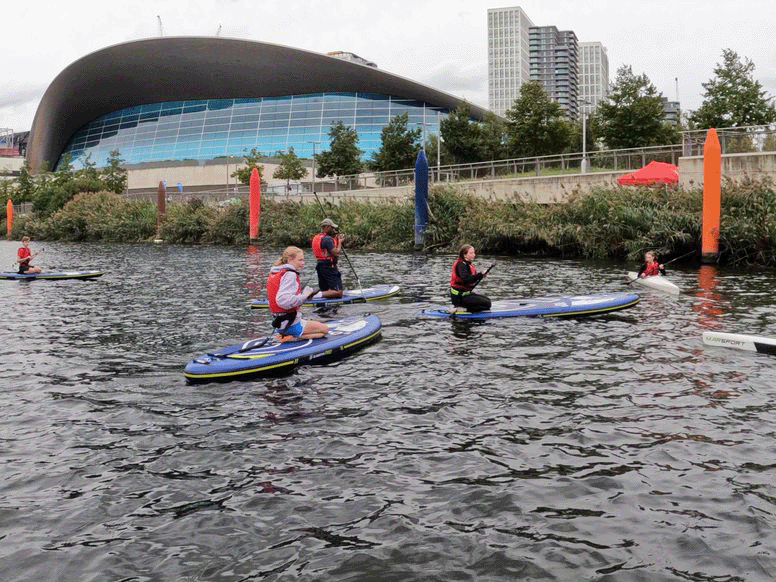
London Youth Rowing engages young people, aged 11-18 years old, who are less likely to participate in watersports, such as those from disadvantaged backgrounds, girls and individuals with disabilities.
Samuel thoroughly enjoyed learning how to paddleboard. “It was all about adapting to what you are not used to and being on a stand up paddleboard was something I was not used to at all! My legs were very wobbly! I was trying to stand up, but once I got my balance, I felt confident. It was brilliant. You don’t often get this opportunity in London.”
“Most of the children we work with can’t swim,” Bobbie Morgan, head of operations and coach development at London Youth Rowing says. The charity therefore have strict safety measures in place for the young people, which is why the coaches go through such a thorough coaching programme. “When the young people are fully engaged with rowing we will encourage them to get swimming lessons, because swimming is a life skill.”
London Youth Rowing work with schools with a high percentage of pupil premium and first encourage young people to engage with indoor rowing machines before they get out on the water. “Most young people don’t think watersports are on their radar, but it all comes down to confidence and feeling included: if they feel out of place then they won’t return. London can be overwhelming for young people but to be out on the water can be incredibly peaceful and freeing, and they don’t have to go that far to do it.”
The investment in coaching has been incredibly beneficial to the coaches and participants alike. As Samuel says: “With coaching, you’re always thinking about other people, but you never think about your own development. What was brilliant about the formal coaching pathway was that I could actually think about what I wanted to do, what I do like and what I don’t like, and what I need to improve on. You don’t really get that time to self-reflect and coaches have to be self-reflective in order to be adaptable and cater to all.”
Related content
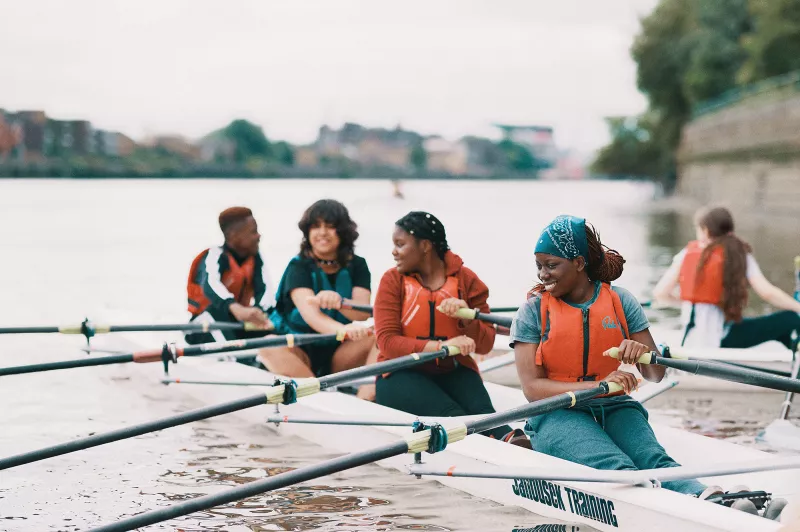
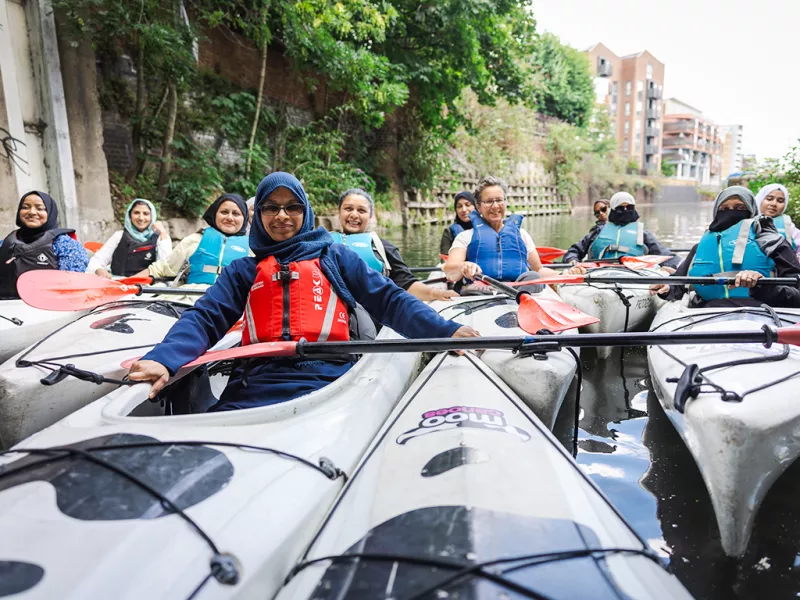
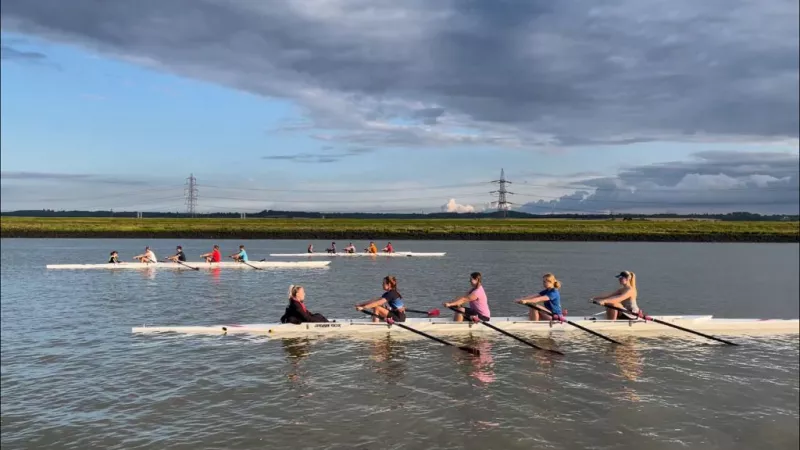
Rowers feel empowered
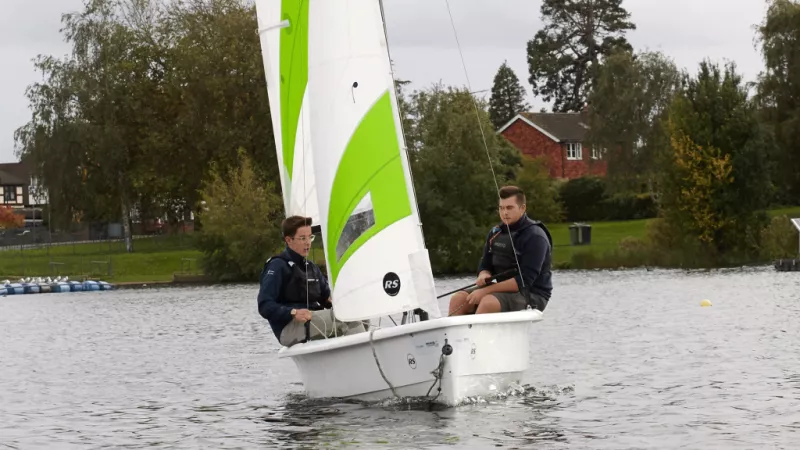
"The whole community works together"

